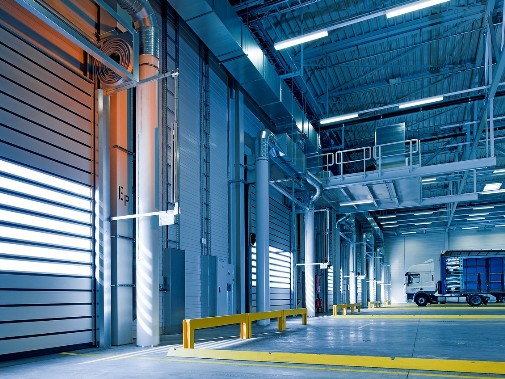Paris Alsace guide
Race walking > Ultra race walks
the survivors guide to the Paris Alsace
In writing this mini guide, it is hoped to inspire and encourage anyone and everyone to have a go. You will not regret it!
OK, it's not cheap. Many of the French walkers manage to get sponsorship from their local towns and businesses. It just doesn't seem to work for British walkers. But if you can get a company on board (especially one with French connections.....well who knows!)
Race invite and entry
decide which race you want to do
La Mythique - c400 km (Men)
La Vosgéenne - c300 km (Men/Women)
La Castèle- c200 km (Men/Women)
First of all, you need to qualify if you decide to compete in La Mythique! And there are several qualifiers throughout the race season (September to April) and a good result of 175km in a 24 hour qualifier should guarantee you an invite.
- September - Roubaix 28 hours. Highly recommended to do this race as you need to be walking for longer than 100 miles/24 hours!
- February/March - Bourges 24 hours
- March - Chateau Thierry 24 hours - good hill training!
- April - Le Grand Est
for upcoming races - see the Fixture page
If you take part in one of these races - and indeed if you do well - you may receive an invite at the presentation of any of these individual races. Or, the organisers may wait until after the last qualifying race.
Once you have your invite (which may be emailed to you), you need to confirm and pay the entry fee (2018 - 100 euros). There is no rush for this as we all know injuries do happen and we never want to pay an entry fee too soon!!!
You can just email the organiser to confirm your invite and delay paying the entry fee until later.
Race rules and regulations
All in French, of course!
As with the race itself, the rules do get a little tweaking every year. Sometimes they are published very close to race start... but not too many surprises.
Support vehicle and crew
It's in the rules... you need one if you are competing!
Most walkers have a camper van as a support vehicle. It is the most practical vehicle as support crew can sleep/rest, food can be stored in a fridge, prepared and cooked and with enough storage space for everyones kit. It can be used for camping so saving on hotel bills.
2018 saw some French athletes with 2 camper vans per walker (or at the very least with a car as a back up vehicle) and two support teams. Amazingly, Tatiana Maslova (winner of 2018 and previous races) "makes do" with a small car and one bike and a very small support team. One walker also used a transit van as his support vehicle.... so it can be done on a "shoestring".
The organisers state competitors in the 2 shorter races - La Vosgéenne and La Castèle need only 1 small vehicle and team.
The vehicle
- Every support vehicle is inspected on the Wednesday before the start time by race officials. This includes checking that the lights, the brakes , etc, all work. Every support vehicle must have a flashing beacon situated on the top of the vehicle which must be switched on at all times.
- If you are taking a bike as well, then this is also checked to ensure the brakes, lights front and back work.
- NOTE: It is very useful to take a bike (which does mean you need a bike rack on the back of your vehicle, of course). Ideally, the bike should have a basket on the front, so food and drink (and waterproofs) can be carried and handed over to the walker when required. Just make sure your cyclists are used to cycling very slowly!
The size/berth of the camper van you will need does depend on the number of people in the support crew, of course. The larger/heavier the van - the more fuel it will need! Also larger campers (6 wheels) are charged more at the tolls on the autoroutes (unless you can convince them it is a smaller vehicle than it actually is.....)
What you need in the camper van:
- a cooker and one that can be turned on and used whilst the vehicle is moving
- cooking utensils: pans, kettle, etc.
- fridge
- microwave
- plentry of cupboard space - one labelled cupboard per person is a good start.
- toilet/shower. You will need plenty of water in the tanks for 4 days. So generally, showers are out of the question (sorry - just take plenty of wipes and deodrant!) and wherever possible use public toilets. Fill up wherever you can before the start. Ladies may well want to use the on board loo rather than the road side; men don't seem to worry too much about this, though.... Make sure you have plenty of bottled water on board - this may come in handy not just to make up drinks and the washing up, but to fill up the water tanks if you run dry. The shower area can be used for storage of water bottles, etc....
- take sleeping bags/pillows for everyone (or everyone can take their own). Again, saves taking loads of bedding and saves lots of washing when you get home.
- save on the washing up (and water) Use paper cups, plates, plastic cutlery. It really does help.
- ideally a bike plus cable locks for the bike on the bike rack.
- Make sure that the door of the camper van is on the right hand side of the vehicle - otherwise support crew will be jumping into oncoming/overtaking traffic! You may have to hie a camper van in France for this, which means taking an extra vehicle- but you maybe able to park your own vehicle near the hire company.
The support crew - Very Important!
- Some teams have designated jobs for everyone in the support team: drivers, companion walkers, cooks, physios, cyclists, etc. That may work for you. But at least make sure that everyone knows what needs to be done/accomplished during the race.
- Have someone to keep track of progress/times - how they are progressing along the course and most importantly, how much time they had to get to the next control point before it closes.
- Do have someone to post photos and progress reports on the Centurions World Wide Face book page to make sure that friends and family at home keep in touch with the race.
- It is important to have at least 2 or 3 drivers (it does depend on how many supporters you have, of course, but the more people who can drive a camper van, the better). And drivers need their rest too! The long stage on the men's race can last up to 59 hours; the womens race up to 38 hours. It can be very tiring driving at 6km to 10km per hour (or even slower!)
- Both walker and support team must wear hi viz vests and the support team should be in a different colour to the walker's vest.
The rules state that support crew must not walk in front of the competitor and should walk on the inside of the road. Ditto cyclists. However, in practice and especially where there are large support teams, this rule tends to be ignored.
A food & drink log
- It's a good idea to write down food and drink consumption - it's so easy to forget when you last ate! And it is very important to eat every 20-30 minutes especially on the main stage (and even on the smaller stages 2 and 4).
Make sure you have a support team member on the roadside on the Prologue/Stage 1 - especially if it is a lapped course. - Do not underestimate the need to take food and drink on board. (It can also be very warm overnight as well as cold and wet) so make sure you have the food to compensate for the fluctuating temperatures.
- Choose food which is easily consumable on the go: e.g. rice pudding, mashed potato, etc, and you will need to take in protein as well as carbs for this long race.
- We all have our favourite grub on a 24 hour race - but do think about "extras" when you get bored of potatoes, rice pudding etc.... bread/cheese.. water melon, biscuits.... what else can you eat/drink.. soup, cold potatoes?
- There are no feeding stations en route - so what you eat is what you have on your support vehicle! Again, stock up when you have the chance (Chateau Thierry, Vitry, Plainfang and all stops in between)
Getting there & where to stay
- The race usually starts the afternoon on Wednesday but there is a lot to do before then. So think of travelling out earlier rather than later.
- Whilst this might be difficult for some, due to annual leave restrictions etc, you really do not want to arrive the day before feeling tired and fractious....
- TeamManx/England have travelled on the Saturday before the race on an early evening shuttle from London to France and camped up overnight at an "ayre" on the autoroute. (Very cheap!) The service stations are really good and stay open 24 hours - and some have showers. Take enough food to cook up that night and then get plenty of rest before driving down to the start.
Contingency planning...Contingency planning...
- check travel info for support crew - rail strikes, flight/train cancellations, etc
- petrol tanker strikes in France
all these mini crises, ca be sorted on the hoof - just don't panic!
Hotel vs camp site?
- This depends on your budget. But if you have a camper van - why not use it?
- Most towns in France have a municipal camp site and they are very good. There are, of course, plenty of private camp sites as well. All have toilets, showers, washing machines... snack bars and/or restaurants close by.
- whatever you choose - book before you leave home
And at the finish
- Depending on what time you finish the race you will want to make sure that you don't have too far to travel to a camp site or hotel. You need to shower, eat, etc, and return for the presenatation on Sunday morning.
Shopping for provisions
- Basic rule, the heavier the camper van, the more fuel it will consume.
- Obviously, you will need to take along some food, drink, etc, for the journey. But do most of the buying in France. This does mean arriving in France and staying close to the start at least a couple of days before the Wednesday start.
- Make sure that your vehicle/s are fully tanked up with fuel and water before the start.
- And for all - fuel up in Epinal and/or before the start of Stage 4 in Plainfang.
Race day: Registration and medical
All vehicles have to park in a designated places at the start
Previous years athletes have received a medical form to complete prior to the race which needs completing and returning 5 or 6 days before race day. Do take a copy of the form to the medical as often they don't seem to receive it....
Signing on: you get handed all the race stickers necessary to place on your support vehicle. Again, this is all inspected to make sure everything is stuck in the right place. You will get two sets of race numbers and in 2018 a hi viz vest to be worn at night - see note above.
Then you have the photo taken....
Next down the steps to wait for the medical: heart rate, ECG, blood presssure etc. Sign the form and you are good to go.
Then go back to your camper van, have lunch, get ready and rest!
At the start, there are the inevitable speeches ... speeches... and more speeches, (just find somewhere in the shade to sit whilst this is going on) and then comes the presentation of the athletes on stage. Then line up at the start and go!

Lorem
consectetuer adipiscing elit. Aenean commodo ligula eget dolor. Aenean massa. Cum sociis natoque penatibus et magnis dis parturient montes, nascetur ridiculus mus

Lorem
consectetuer adipiscing elit. Aenean commodo ligula eget dolor. Aenean massa. Cum sociis natoque penatibus et magnis dis parturient montes, nascetur ridiculus mus

Lorem
consectetuer adipiscing elit. Aenean commodo ligula eget dolor. Aenean massa. Cum sociis natoque penatibus et magnis dis parturient montes, nascetur ridiculus mus
Lorem Ipsum
consectetuer adipiscing elit. Aenean commodo ligula eget dolor. Aenean massa. Donec vitae sapien ut libero venenatis faucibus. Nullam quis ante. Etiam sit amet orci eget eros faucibus tincidunt. Duis leo. Sed fringilla mauris sit amet nibh. Donec sodales sagittis magna. Sed consequat, leo eget bibendum sodales, augue velit cursus nunc.

Lorem
consectetuer adipiscing elit. Aenean commodo ligula eget dolor. Aenean massa. Cum sociis natoque penatibus et magnis dis parturient montes, nascetur ridiculus mus
Services
consectetuer adipiscing elit. Aenean commodo ligula eget dolor. Aenean massa. Cum sociis natoque penatibus et magnis dis parturient montes, nascetur ridiculus mus